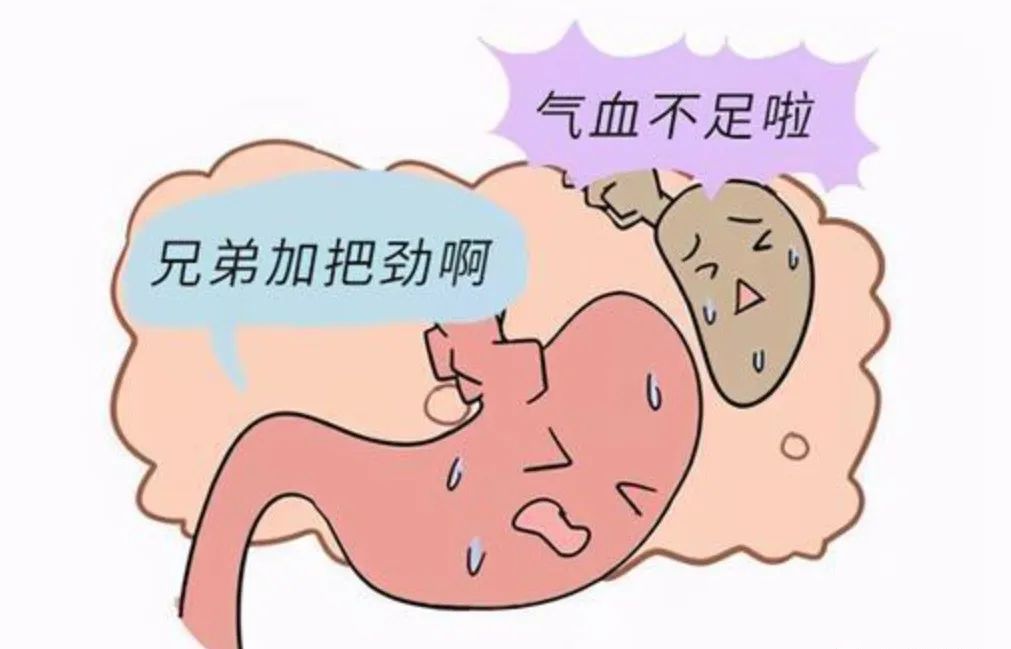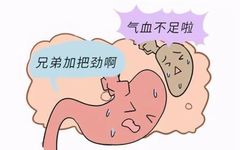
It is well known that the fundamental theory of Traditional Chinese Medicine (TCM) is “Yin-Yang balance.” When this balance is disrupted, whether there is excess Yin and deficiency of Yang, or excess Yang and deficiency of Yin, various health issues can arise. Those who have consulted a TCM practitioner may have heard the terms “Yin deficiency” or “Yang deficiency,” but many do not fully understand what Yin and Yang represent in the human body.

Yang is an abstract state, often described as a form of energy that is intangible and invisible. Yang energy is the essence of life, providing vitality to the body, much like the sun in the sky; without the sun, all living things would wither. Yin, in contrast, is a tangible substance that can be seen and touched. It represents the three fundamental energies of the body: Jing (精), Xue (血), and Jin Ye (津液).Jing: Represents the kidney essence, which can be divided into two types: congenital and acquired. Jing is essential for growth and development from birth to death.Xue: This is self-explanatory; it refers to the blood flowing through the body’s vessels.Jin Ye: Represents the bodily fluids, such as sweat produced during exercise, tears shed when sad, urine expelled, saliva in the mouth, and gastric juices. All these fluids are classified as Jin Ye, and the body requires them to stay hydrated. For instance, individuals who experience dry skin and itchiness in winter or persistent thirst that is not quenched by drinking water may be suffering from insufficient Jin Ye.Having read this, I believe everyone should have a basic understanding of Yin and Yang in TCM. The terms “Yin deficiency” and “Yang deficiency” refer to the depletion of these energies. However, today we will focus primarily on Yin deficiency, as it is prevalent among many individuals.
Consequences of Long-Term Yin Deficiency
Many people perceive Yin deficiency as a state similar to sub-health, believing it has minimal impact on the body, merely causing occasional discomfort. This is a misconception. As mentioned earlier, Yin is one of the three core energies of the body.Consider this: if a “core energy” of an object is lost, what would be the outcome? Just like a car without gasoline, Iron Man without his reactor, or Thanos without his gauntlet, the body’s activities fundamentally rely on Yin for support.Common consequences of Yin deficiency include:1. Aversion to heat, feeling excessively hot, with palms and soles sweating profusely.2. General weakness, lack of motivation, fatigue with minimal activity, and an inability to gain weight, often accompanied by a pale complexion and frequent dizziness.3. A pervasive sense of dryness, feeling as if the body is drained, with dry throat, skin, eyes, and stools, and persistent thirst that is unrelieved by drinking water.4. Frequent night sweats, sweating more than the average person.5. Tinnitus, with a constant ringing in the ears.6. Hair loss, with signs of balding in one’s twenties and the emergence of gray hair.7. Infertility issues in both men and women, with reduced sperm count in men and decreased egg quality in women.8. Irregular menstrual cycles in women.Not all symptoms need to be present for one to be considered Yin deficient; even one persistent symptom should raise concern. In summary, Yin deficiency indicates a “lack of water” within the body.
Causes of Yin Deficiency
1. Staying up late: Those familiar with previous articles know that staying up late is detrimental to health. It significantly depletes Qi and blood. When one stays up, they are not sleeping, which means they are using their eyes, whether watching TV, using a phone, or working on a computer. The eyes rely on Qi and blood for function. Prolonged daytime use of the eyes, combined with late-night usage, leads to Qi and blood deficiency. The liver opens to the eyes and stores blood; without sleep, blood cannot be stored in the liver, hence staying up late harms the blood.2. Excessive heat and bad temper: Heat can scorch Yin. This heat is not only from food but also from liver fire. Frequent anger, frustration, and irritability generate liver fire, which naturally reduces water.3. Uncontrolled diet: Consuming overly flavorful foods, especially spicy and salty dishes, leads to thirst and long-term consumption depletes Jin Ye.4. Organ dysfunction: This primarily refers to issues with the organs that hinder the production of Jin Ye. For example, diabetes results in the inability to transform food into Yin, leading to weight loss despite high food intake. However, not everyone has a genuine disease; it may just be a temporary imbalance in the organs, which requires adjustment. Simply nourishing Yin without addressing organ function may not yield significant results. For instance, if the spleen is weak, it cannot produce blood effectively.5. High-intensity exercise: As mentioned earlier, Jin Ye includes bodily fluids like sweat. During high-intensity exercise in summer, excessive sweating can lead to depletion of Jin Ye over time.In summary, Yin deficiency is caused by excessive consumption and depletion.
How to Improve Yin Deficiency
Yin cannot be directly supplemented. As mentioned, Yin is produced through the coordinated function of the five organs. Therefore, it cannot be replenished solely through medications or food. This raises a question: why do many products on the market claim to replenish Qi and blood or Jing? Do not assume that what you consume will directly transform into Jing, blood, or Jin Ye. The principle is simple: it enhances the function of the organs to achieve supplementation. For example, Dang Gui (当归, Angelica Sinensis) nourishes blood primarily by enhancing the functions of the heart, liver, and spleen, which are responsible for blood production. When these functions are strengthened, the body can naturally achieve supplementation. The same applies to nourishing Jing and Jin Ye.Step 1 to Nourishing Yin: Eliminate bad habits. One must first abandon the habits that deplete Yin. If this first step is not accomplished, subsequent efforts will be challenging.Step 2 to Nourishing Yin: Regulate the spleen and stomach. The spleen is often the most affected organ; when anyone is ill, the spleen should be the first focus. If the spleen is dysfunctional, it produces phlegm, which obstructs the central circulation, leading to various issues. Once the spleen and stomach are normalized, one can consume nourishing foods. However, many Yin-nourishing foods are rich and may not be easily absorbed, such as Huang Jing (黄精, Polygonatum) and Shu Di Huang (熟地黄, Rehmannia). Therefore, the second step focuses on regulating the spleen and stomach.Step 3 to Nourishing Yin: Choose the right ingredients.To nourish Jing: Goji berries, black sesame, yam, mulberries, and water chestnuts.To nourish blood: Cook a porridge with red dates, longan, and black rice; daily consumption of Dang Gui, Bai Shao (白芍, White Peony), and Shu Di Huang can be beneficial, but consult before use as individual needs vary.To nourish Jin Ye: Black plums, lily bulbs, duck meat, tremella, and lotus root.These ingredients can be used to make porridge or teas. If the spleen and stomach are weak, adding Chen Pi (陈皮, Dried Tangerine Peel) and Fu Ling (茯苓, Poria) can also help strengthen the spleen.In conclusion:Nourishing Yin is fundamentally about preventing illness. Yin is the core capability of the body; one cannot only consume without replenishing. If energy is depleted, one’s constitution will gradually deteriorate. Rather than waiting for problems to arise, it is better to maintain good health regularly.
Friends,
Start learning now!
And don’t forget to
Share with your friends
So they can learn together, just in case!
-
How to see the latest updates from the public account

If you want to learn about Bagua Hand Acupuncture, scan the QR code below to sign up for a free experience.
More exciting content

Scan to follow
In the end, a little kindness goes a long way; can you give a “like”?


